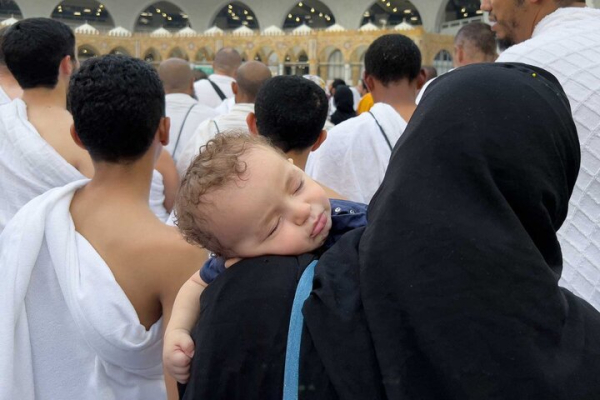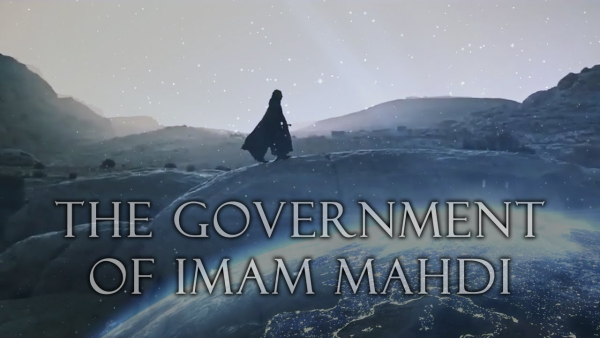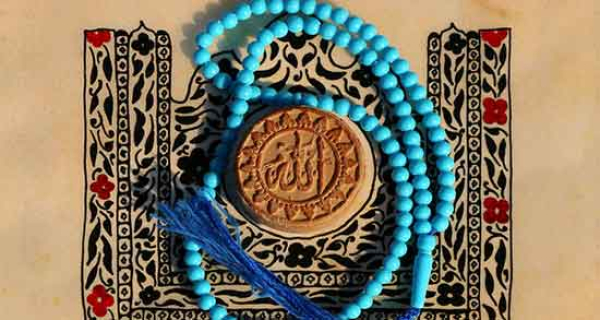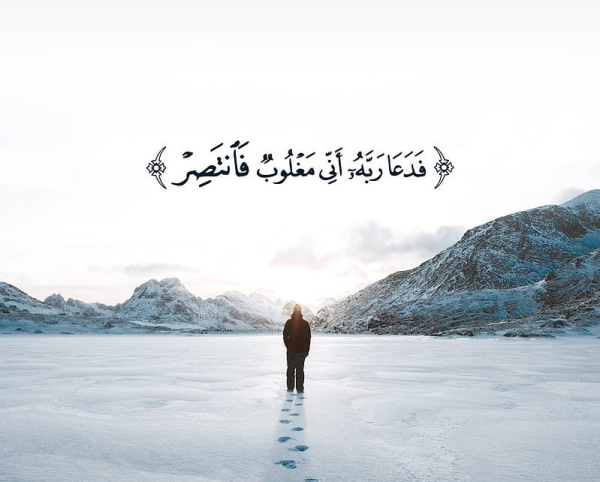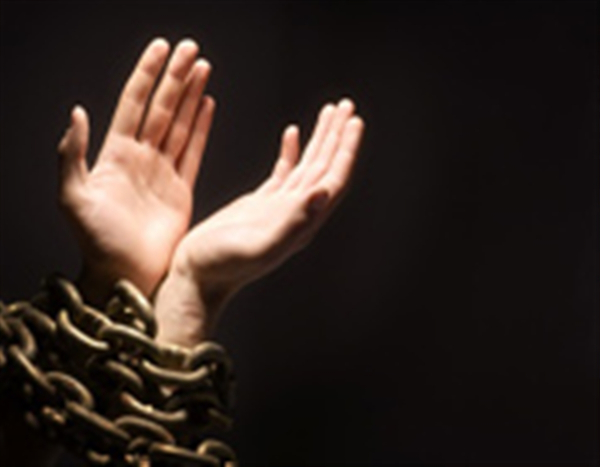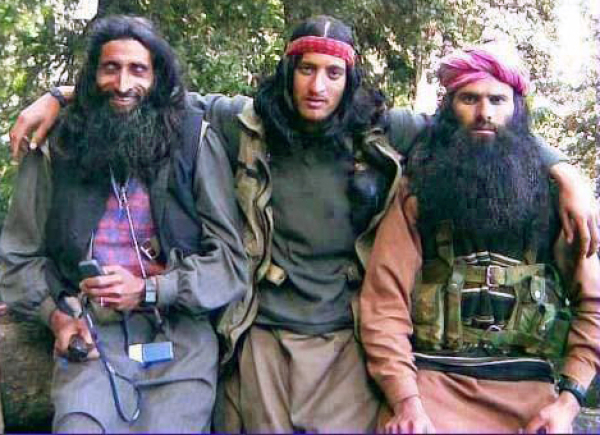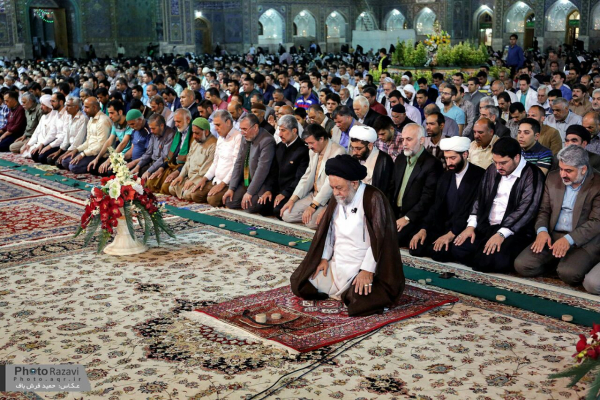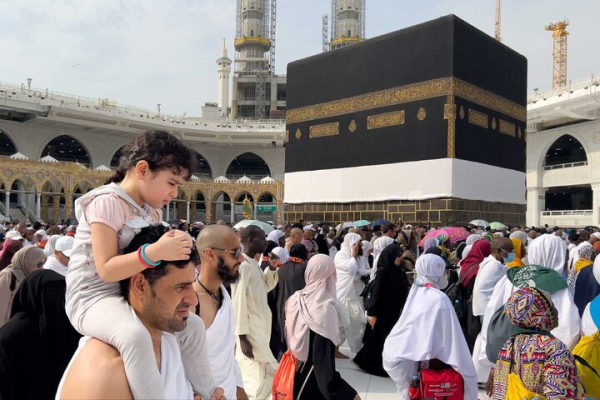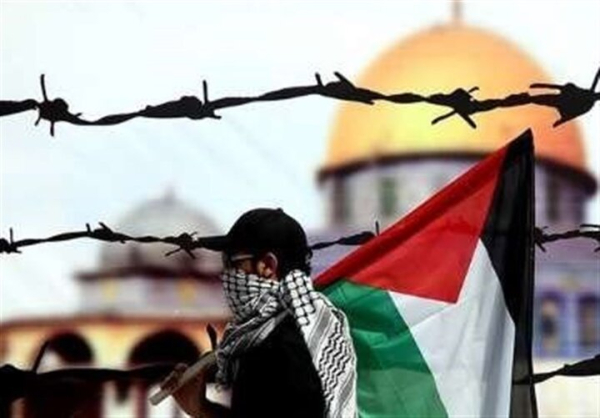zarezadeh
Summary of Hajj Tamattu acts
Hajj Tamtaa is briefly as follows:
- A) Umrah Tamta Umrah Tamta must definitely take place in the months of Hajj (Shawwal, Dhul-Qa'dah and Dhul-Hijjah); And it consists of the following five actions:
- Putting on Ihram from Miqat for the purpose of Umrah.
- circling the Kaaba seven times.
- Two rak'ahs of Tawaf prayer near Maqam Ibrahim.
- Sa'i between Safa and Marwah (seven times)
- Guilt, i.e. cutting some of the hair or nails, but not being satisfied with cutting the nails.
After performing the above five actions, he comes out of Ihram and all the things that were forbidden to him because of Ihram become halal.
- b) Hajj Tamta Hajj Tamta includes the following actions:
- Putting on Ihram from Mecca.
- Waqf (stopping) in "Arafat" from noon to sunset on the ninth day of Dhul-Hijjah.
- Waqf in Mashar al-Haram and staying in it from dawn on the day of Eid al-Adha until sunrise.
- Go to Mina and throw the Aqaba Jamrah (that is, throw seven small stones at the place at the end of Mina and its name is "Aqbah Jamrah").
- Sacrifice in Mina on the day of Eid al-Adha (10th of Dhu al-Hijjah).
- Halq or gaqsir, that is, shaving the head or cutting some of the hair or nails; But don't be satisfied with nails alone. By performing these six actions, everything that was forbidden to him with Ihram becomes halal, except for his wife and good smell.
- Seven rounds of Tawaf of the Kaaba (this Tawaf is called Tawaf Ziarat).
- Performing two rakats of Tawaf prayer.
- Traveling between Safa and Marwah. When these three actions are done, the pleasant smell becomes halal for Muharram.
- Another circumambulation is performed around the house of Kaaba and this circumambulation is called Nisa circumambulation.
- Two rakats of Tawaf Nisa prayer. By performing these two acts, the wife also becomes lawful for him.
- Returning to Mina and staying the 11th and 12th night (and in some cases the 13th night) in the end.
- Throwing three Jamrats (that is, throwing seven stones on the 11th and 12th day at each of the three places located in Mina, and these three places are called the first and middle Jamrat and the Aqaba Jamrat). In the afternoon of the twelfth day, after performing these actions, he can return to Mecca and his Hajj is complete.
The world government of Hazrat Mahdi (AS)
According to traditions, one of the famous characteristics of Hazrat Mahdi's government is its universality. Mahdi's rule covers the east and west of the world, there is no place left on earth unless the voice of monotheism is heard from it, and the whole world is filled with justice and giving.
In that era, at the hands of that great Imam, the lofty ideal of forming a great human society and human family will be realized and the long-standing wish of all prophets and imams (a.s.) and reformers and philanthropists will be fulfilled. Imam Reza (a.s.) from the Holy Prophet (PBUH) has narrated as follows: God said on the night of Ascension:... and I will truly cleanse the earth from my enemies through the last (infallible imams (pbuh)) and I will place the entire extent of the earth under his rule.. "
In the era of Imam Mahdi's leadership, one of the main factors of conflict, war and oppression will be eliminated by creating a single centrality and management and sovereignty for all communities, races and regions. The beloved Messenger of Islam (PBUH) says: "There are twelve leaders after me; The first of them is you, O Ali, the last of them is Qaim; He who is God will conquer the whole earth with his hands, the easts and the wests.
Of course, this hope is rooted in the thoughts and beliefs of all ethnic groups and nations, and it is more or less different everywhere; But in Shiite thought, it benefits from a special clarity and clarity; In this way, the Imam is waiting and the final savior is alive. One day he will come by God's command and fill the world with justice.
One of the concepts that emerged from the very beginning in connection with Mahdism and the appearance of the promised savior and was among the religious beliefs of many Shias is the concept of "one global government". According to this belief, with the appearance of the absent Imam, Islam, as the only divine and perfect religion with a comprehensive Sharia, will be accepted by everyone, the oppressors will be pulled down from the power base; The global government of Islam will be established under the direct leadership of the last innocent and just Imam, and justice will be implemented on a global scale based on religion and morality. In some verses of the Quran, this sovereignty is mentioned in some way
(وهُو الذی اَرْسلَ رَسوُلهُ بالهُدی وَ دینِ الحق لِیُظهِرهُ عَلی الدین کُلهِ)
. Of course, the verses related to the universality of Islam also confirm this meaning; Because this divine promise has not been fulfilled and without a doubt it must be fulfilled sometime.
Why do Shiites pray on Turbah, especially Turbah of Imam Hussain (AS)?
1. It is obligatory to perform our Prayer as the Prophet Muhammad (SAWA) performed Prayer as he has ordered every Muslim (Perform Prayers as you saw me performing Prayers) (.صَلّوا كما رآيتموني أُصَلّي ).
2. The Prophet (SAWA) never performed a Prayer but by putting his forehead on the earth or something from earth except textile or edible and said جُعِلَت ليَ الأرضُ مسجدا وطَهوراً (Earth was ordained for me a place of prostration and purification (Tayammum).
3. Prostration on carpet is a Bid’ah which never done by the Prophet nor Ahlul Bayt or any pious companion of the Prophet. Leading Sunni Shaikh said that prostrating on carpet (Sajjada ) is a Bid’ah.
4. We don’t prostrate putting our forehead but only on the earth or anything from earth except textile and edible. That is because we obey and follow the Prophet Muhammad (SAWA). This obligatory to keep our Prayer valid by following the order of the Prophet (SAWA).
5. We can put our forehead on any pure clay, though the clay of Karbala has been praised in many authentic Hadeeths being a sacred place, that is why use it as place for prostration as a recommended act.
al-islam website
God is victorious and avenger
Therefore he called upon his Lord: I am overcome, come Thou then to help (Gamar: 10)
When Noah despaired of guiding them, "he offered to the Lord: I have been defeated (by this rebellious people), take my revenge on them"
They never overcame me with evidence, but they overcame me through cruelty and crime, denial, and all kinds of torture and pressure.
Gaza war will end at once if US cuts off Israel’s military aid: Ex-CIA analyst
A former analyst with the US spy agency CIA says the Israeli aggression against the Gaza Strip will end immediately if Washington stops the flow of weapons to the occupying regime.
Speaking to Press TV, Larry Johnson condemned the United States for “enabling” Israel to kill civilians during its bloody war on the besieged Gaza Strip.
“If it (the US) halted the shipment of ammunition, bombs and artillery rounds and told Israel we are going to cut off your economic aid, the war will stop,” he said.
However, he added, a suspension of arms transfer to Israel “is not a feasible option” politically because of the influence of the Israeli lobby in the US, AIPAC, and the support the regime enjoys among the Democrats and the Republicans.
The US, a staunch ally of Israel, provides over $3 billion in military aid to the regime annually.
It has offered untrammeled support for Israel since October 7, when the usurping entity waged the brutal war on Gaza following a historic operation by the Palestinian Hamas resistance group.
Since the start of the offensive, the Tel Aviv regime has killed at least 18,608 Palestinians, mostly women and children, and injured 50,594 others.
Johnson said that Palestinians are “headed towards being extinguished” in Gaza as Israel is targeting and destroying hospitals and schools, as well as critical infrastructure for sewage and water in the besieged territory.
“They (the Israelis) are making it (Gaza) deliberately unlivable and the world is sort of figuratively sitting on its hands even though it is voting to condemn Israel,” he noted, referring to Tuesday’s high vote for a UN General Assembly resolution demanding an immediate humanitarian ceasefire in Gaza.
The expert also said that the heated rhetoric against Israel should be accompanied by actual measures such as cutting off the oil supply to the occupied territories.
As long as Israel is not facing any economic consequences for its actions, it will continue its murderous policy against the Palestinians without any regard for their lives, he predicted.
“The only thing that is going to stop that (the war) is tangible action by countries that control the ports…, the oil and things that Israel needs,” he said.
Press TV’s website
Murji'ah
Murji'ah (Arabic: المرجئة, English: "Those Who Postpone"), also known as Murji'as or Murji'ites, were an early Islamic sect. Murji'ah held the opinion that God alone has the right to judge whether or not a Muslim has become an apostate. Consequently Muslims should practice postponement (ʾirjāʾ) of judgment on committers of major sins and not make charges of disbelief (’takfir’) or punish accordingly anyone who has professed Islam to be their faith. They also believed that good deeds or omission of them do not affect a person's faith, and a person who did no other act of obedience would not be punished in the afterlife as long as they held onto pure faith. They used to say that "disobedience does not harm faith as good deeds do not help with disbelief."
The emergence
During the early centuries of Islam, Muslim thought encountered a multitude of influences from various ethnic and philosophical groups that it absorbed. This group emerged as a result of the controversy around the assassinations of the Rashidun caliphs Uthman ibn Affan and Ali ibn abi Talib. The Murji'ah emerged as a theological school that was opposed to the Kharijites on questions related to early controversies regarding sin and definitions of what is a true Muslim. The Khawarij believed that committing a sin amounted to leaving Islam and the Murji'ah reacted with the opposite extreme, that deeds not only do not result in leaving Islam, but do not affect one's faith at all.
As opposed to the Kharijites, Murjites advocated the idea of deferring judgment of other peoples' belief. The word Murjiah itself means "one who postpones" in Arabic. Murjite doctrine held that only God has the authority to judge who is a true Muslim and who is not, and that Muslims should consider all other Muslims as part of the community. This theology promoted tolerance of Umayyads and converts to Islam who appeared halfhearted in their obedience. They urged unity among Muslims, and their conciliatory principles made them popular.
Beliefs on major sin
In another contrast to the Kharijites, who believed that committing a major sin would render a person non-Muslim, Murjites considered genuine belief in and submission to God to be more important than acts of piety and good works. They believed Muslims committing major sins would remain Muslim and be eligible for paradise if they remained faithful. Conversely, those engaging in shirk cannot benefit salvation from performing good acts. Thus, faith is paramount.
Salafism
Salafism is known as Ahle Hadith.
Ahl-i Hadith ( People of the traditions of the Prophet) is a movement which emerged in the Indian subcontinent in the mid-19th century. Its followers call themselves Ahl al-Hadith and are considered to be a branch of the Salafiyya school. Ahl-i Hadith is antithetical to various beliefs and mystical practices associated with folk Sufism. Ahl-i Hadith shares many doctrinal similarities with the Wahhabi movement and hence often classified as being synonymous with the "Wahhabis" by its adversaries. However, its followers reject this designation, preferring to identify themselves as "Salafis".
Salafiyya movement
The Salafiyya movement is a conservative, Islahi (reform) movement within Sunni Islam that emerged in the second half of the 19th century and advocate a return to the traditions of the "devout ancestors" (Salaf al-Salih). It has been described as the "fastest-growing Islamic movement"; with each scholar expressing diverse views across social, theological, and political spectrum. Salafis follow a doctrine that can be summed up as taking "a fundamentalist approach to Islam, emulating the Prophet Muhammad and his earliest followers—al-salaf al-salih, the 'pious forefathers'....They reject religious innovation, or bidʻah, and support the implementation of Sharia (Islamic law)."[ The Salafi movement is often divided into three categories: the largest group are the purists (or quietists), who avoid politics; the second largest group are the militant activists, who get involved in politics; the third and last group are the jihadists, who constitute a minority. Most of the violent Islamist groups come from the Salafi-Jihadist movement and their subgroups. In recent years, Jihadi-Salafist doctrines have often been associated with the armed insurgencies of Islamic extremist movements and terrorist organizations targeting innocent civilians, both Muslims and Non-Muslims, such as al-Qaeda, ISIL/ISIS/IS/Daesh, Boko Haram, etc. The second largest group are the Salafi activists who have a long tradition of political activism, such as those that operate in organizations like the Muslim Brotherhood, the Arab world's major Islamist movement. In the aftermath of widescale repressions after the Arab spring, accompanied by their political failures, the activist-Salafi movements have undergone a decline. The most numerous are the quietists, who believe in disengagement from politics and accept allegiance to Muslim governments, no matter how tyrannical, to avoid fitna (chaos).
Shia Islam
Shīʿa Islam is the second-largest denomination of Islam, comprising around 10–15% or more among the total Muslim population. Shīʿa Muslims constitute the majority of the Muslim populations in Iran, Iraq, Lebanon, Bahrain, and Azerbaijan, as well as significant minorities in Syria, Turkey, South Asia, Yemen, and Saudi Arabia, as well as in other parts of the Persian Gulf[
In addition to believing in the supreme authority of the Quran and teachings of Prophet Muhammad(pbuh), Shīʿa Muslims believe that Holy Prophe's family, the Ahl al-Bayt ("People of the Household"), including his descendants known as Imams, have distinguished spiritual and political authority over the community and believe that ʿAlī ibn Abī Ṭālib (pbuh), Holy Prophet's cousin and son-in-law, was the first of these Imams and the rightful successor to Muhammad, and thus reject the legitimacy of the first three Rāshidūn caliphs but respect to them as Sahaba of the Holy Prophet.
Major sub-denominations
List of extinct Shia sects
• The Twelvers believe in the Twelve Shīʿīte Imams and are the only school to comply with the Hadith of the Twelve Successors. It is the most compelet sect among shias. This group is not accepted the other groups of shias.
• Ismāʿīlīsm, including the Nizārī, Sevener, Musta‘lī, Dawudi Bohra, Hebtiahs Bohra, Sulaymani Bohra, and Alavi Bohra sub-denominations.
• The Zaydīs
• The Alawites T
• The Druze
• The Baháʼí Faith
By what conditions does Hajj become obligatory for a person?
Hajj is visiting the house of God and doing the deeds that are performed there, and it is obligatory once in the entire life of a person who has this condition, and those conditions are:
1- Be an adult.
2- Be wise and free.
3- By going to Hajj, he should not be forced to perform a forbidden act, which is more important in Sharia than Hajj, or to leave an obligatory act that is more important than Hajj.
4- To be reasonable, therefore, to be reasonable is to several things:
1) He should have the travel luggage and the things that he needs during the trip, which have been mentioned in detail in his place, as well as travel expenses or money that he can provide them.
2) Mental health and the ability to go to Mecca and Hajj.
3) There should be no obstacles on the way, and if the way is closed, or the person fears that his life or wealth will be lost on the way. or they take his property, Hajj is not obligatory on him, but if he can go by another way, even if it is far, if it is not too difficult and not too unconventional, then he should go that way.
4) To have enough time to perform Hajj.
5) He should have the expenses of those whose expenses are obligatory on him, such as his wife and children, and the expenses of those whom people consider it necessary to spend on them.
6) After returning, earn, or cultivate, or earn, property, or have another way to support yourself so that you don't have to live in hardship.
Why did Hamas start the war?
You have probably heard this question from people in the streets and markets. But it seems that such an issue is more with the purpose of showing the changes of Palestine in a suspicious and upside down way and of course replacing the oppressed and the oppressor. A point that should not be overlooked is that during the 75 years of occupation, the Zionists, relying on their superior economic, political and especially military power, have not refrained from any crime against the original inhabitants of the Palestinian land.
However, now the page has turned; The resistance, which once relied only on stones to defend and confront the Zionists, is now changing fields with missiles and drones. So it must be said that the resistance was aware of the consequences of its decision. However, is it possible to be indifferent to insults and insults to Al-Quds and Al-Aqsa Mosque as the first Qibla of Muslims? Is it possible to be indifferent to the 7,000 Palestinian prisoners who are caught in the hands of the Zionists and are suffering a lot of pain and hardship?
Hamas's attack was preemptive and a response and defense against 75 years of crimes and killings, martyrdom of thousands of martyrs, capture of thousands of captives, brutal killing of defenseless women and children, 16 years of complete siege of Gaza, occasional violations and unmentionable assaults and tortures against Palestinian women and prisoners. Men in the prisons of the Zionist regime have prevented the growth and development of Palestinian youth.
This happens to be a fundamental step in the path of the great cause, that is, the freedom of Palestine. Is there any other way to free Palestine from the grip of the invaders but resistance? Was the outcome of the Camp David meeting and Abraham's peace more damaging to the rights of the Palestinians? With these interpretations, in the long term, the benefits of this resistance movement are definitely more than its losses.
The collapse of Israel's political and military authority, extensive economic consequences, the beginning of the process of reverse migration of Jews from occupied Palestine, and the global isolation of Zionists are only a few of these achievements. In addition, it should not be forgotten that Hamas, which initiated such a move, must have plans for the next steps and the possible ground entry of the Zionists into Gaza. We have to wait until then and see what the resistance will do.
